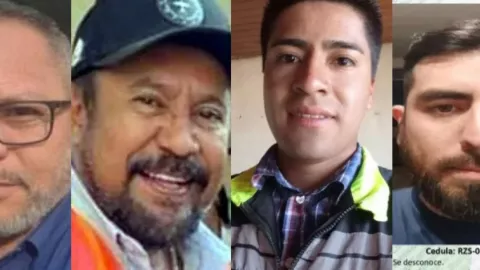El Salvador Congress Greenlights Indefinite Presidential Reelection, Sparking Fears of Democratic Backslide
In a move that has sent shockwaves through democratic institutions across the Americas, El Salvador’s Congress—dominated by President Nayib Bukele’s ruling party—approved a sweeping constitutional reform on Thursday that paves the way for indefinite presidential reelection and extends the presidential term from five to six years.
The measure cements Bukele’s hold on power and formalizes a political transformation that critics say is steering the country away from democracy and toward one-man rule.
Passed with minimal debate and overwhelming support from 57 pro-government lawmakers—opposed by only three remaining opposition deputies—the reform allows for “unrestricted reelection,” eliminates presidential runoffs, and aligns presidential, legislative, and municipal elections. Additionally, it shortens the current presidential term by two years, moving general elections from 2029 to March 2027, allowing Bukele to run once again under the new legal framework.
This legislative overhaul is just the latest maneuver in Bukele’s rapid consolidation of power. Reelected in 2024 with a staggering 85% of the vote, Bukele already controls the presidency, legislature, judiciary, and virtually all state institutions. The opposition, now reduced to a symbolic minority, has denounced the reforms as a blatant dismantling of democratic safeguards.
“This is not about reform—it’s about erasure,” said Eduardo Escobar, a Salvadoran constitutional law expert and director of Acción Ciudadana. “They are erasing the line between democracy and dictatorship, and doing so legally, with frightening efficiency.”
Bukele, 44, rose to prominence with a populist brand and a hardline security agenda that has dramatically reduced violence in a country once plagued by gang warfare. His “war on gangs,” launched under a controversial state of emergency in 2022, has led to the arrest of more than 87,000 people. Homicide rates have plummeted to record lows, and for many Salvadorans, daily life feels safer.
But critics argue that Bukele’s security achievements come at the cost of fundamental rights. The emergency measures—still in place three years later—allow for arrests without warrants, suspension of due process, and harsh prison conditions. NGOs such as Cristosal and Socorro Jurídico Humanitario report thousands of arbitrary detentions and at least 430 deaths in custody.
Despite these alarming figures, Bukele remains wildly popular, with approval ratings consistently above 75%. That popularity, however, is often used to justify actions that undermine democratic norms.
“The problem with authoritarianism in the 21st century is that it doesn’t come with tanks—it comes with hashtags and ballots,” said José Miguel Vivanco, former Americas director for Human Rights Watch. “Bukele is using democratic tools to hollow out democracy from within.”
Human rights groups warn that the climate for dissent is deteriorating. Prominent attorney Ruth López, who investigated corruption allegations against the Bukele administration, was arrested in May. Scores of independent journalists, activists, and opposition voices have either been detained, harassed, or forced into exile.
In April 2024, the same Congress approved a procedural reform that eliminated the need for a second legislative ratification of constitutional amendments—removing a key barrier to authoritarian drift. That reform ensured that Thursday’s vote was final and binding, with no requirement for public input or future legislative review.
“This is the end of the system of checks and balances,” said Celia Medrano, a well-known human rights advocate and former vice-presidential candidate now living in exile. “We are witnessing the construction of an electoral autocracy.”
The constitutional changes have drawn condemnation from international watchdogs and foreign governments, though few have taken concrete action. The Organization of American States (OAS) expressed “grave concern” over the erosion of democratic norms, while the U.S. State Department called on El Salvador to “respect constitutional limits and human rights.”
Yet Bukele has often dismissed international criticism with bravado. In a recent speech marking his second term, he shrugged off accusations of authoritarianism, saying: “I don’t care if they call me a dictator.”
Analysts say this defiance, paired with public support, creates a dangerous cocktail for democratic backsliding. “When leaders are allowed to rewrite the rules to stay in power, history shows us the result is never stability,” warned former Costa Rican President Laura Chinchilla. “It’s a warning not just for El Salvador, but for the region.”
What happens next could define El Salvador’s political future for decades. With elections now scheduled for 2027 and reelection fully legalized, Bukele’s path to remaining in power indefinitely appears unobstructed—at least legally.
For many Salvadorans who have traded freedom for security, that may be a price worth paying. For others, it’s a dangerous gamble that risks returning the country to a dark chapter of authoritarian rule that many had hoped was permanently behind them.








